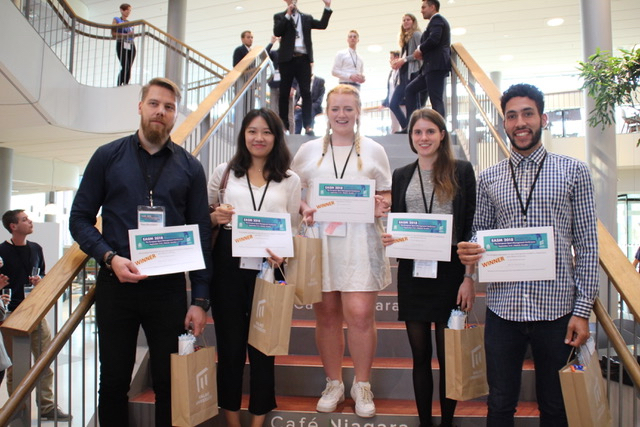
21 Feb Young Talent Award
presented by EASM and GS
The European Association for Sport Management (EASM) and Global Sports (GS) – the leading sports industry careers platform helping individuals build amazing careers in the global business of sport collaborated in establishing the Young Talent Award in 2019. This is a prestigious EASM award aimed at rewarding academic efforts of young scholars in the field of sport management. The Award further aims to:
- encourage, support and motivate young colleagues to participate in the EASM Student Seminars and conferences and add new and dynamic perspective to the growth of young scholars in EASM.
- reward young and talented sports management students financially and also bestow scholarly recognition on them based on their performances during the Sport Management Game of the annual EASM Student Seminar.
- promote career development in the field of sport management.
Structure of the Award
The EASM/GS Young Talent Award will be adjudicated based on the performance of participants at the Management Game. The Award will be highly competitive and only the best and well-presented solutions will be considered.
Eligibility
Eligibility will be confined to students who have registered and currently attending the Student Seminar that usually precedes the annual EASM conference and the following conditions applies:
- In order to be shortlisted for the Award, students must have made significant contributions to the Management Game individually or as part of a Group.
- The work of such students must reflect EASM’s values in leadership, service, scholarship, and collegiality.
- Such students must demonstrate professionalism, collegiality and expertise whilst undertaking various roles within EASM Student Seminar.
- The Awardee must have acted in a respectful manner, demonstrating the EASM values of inclusivity, collaboration and integrity.
The Award Prize
The Award will be a cash prize of 1,000 Euros. The cash price will be shared equally to five (5) students who have been deemed worthy by the Award Committee.
Award Committee
An Award Committee comprising of three members of EASM selected by the EASM Board upon the recommendation of the President and Secretary General.
Winners Obligations
The winners of the award shall become EASM Ambassadors in their respective educational institution and or country of residence. They shall be further obligated to:
- Deliver at least one presentation (oral or poster) at an EASM or GS event in their institution or country of residence.
- Be prepared to mentor other young Sport Management scholars.
- Write a two-page post-award report (podcast or video message accepted too) describing their experience during the Student Seminar and activities leading to the grant of the award. The two-page narrative must be submitted in English and use a minimum of 12-point font and one-inch margins (podcast or video message, keep it about 3-5 minutes).
The post-award report must be submitted electronically to the EASM Office (office@easm.net), by October 15th after the annual EASM conference and must include but not limited to:
- Motivation for your attendance at the EASM Student Seminar.
- Outcome of the EASM Conference/Student Seminar attendance for you and how it would influence your future career.
- Plans on how you intend to disseminate learning outcomes gained from your attendance at the Conference/Student Seminar to the wider student population.
Award Evaluation Criteria:
- Awardees must be students (Bachelor/Masters) who have registered and currently attending the Student Seminar that usually precedes the annual EASM conference.
- Awardees must be part of a group not more than five (5) participating in the Student seminar.
- The students’ work presented to the Awards Committee must be original and may not have been submitted elsewhere.
Proposals will be evaluated on the following criteria:
- Alignment with the mission of the Management Game
- Realistic project in the sport management field
- Clearly articulated (a) purpose of the project, (b) theoretical framework, (c) proposed methods, (d) analytical strategy, (e) expected results, and (f) significance of the project.
- Professional delivery


